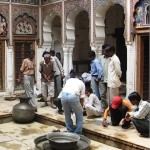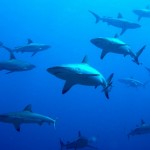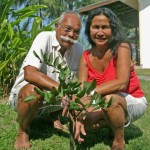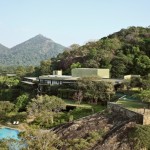 [dropcap]T[/dropcap]his post congratulates Sukau Rainforest Lodge for being recognized as a 2013 Wild Asia Responsible Tourism Awards Finalist. This award recognizes the accommodation provider that excels in all of the above categories by taking into consideration all the key principles of responsible tourism (maximum positive impacts to the local community and minimum negative impacts to the environment) and awards innovation for this most inspiring accommodation of the year.
[dropcap]T[/dropcap]his post congratulates Sukau Rainforest Lodge for being recognized as a 2013 Wild Asia Responsible Tourism Awards Finalist. This award recognizes the accommodation provider that excels in all of the above categories by taking into consideration all the key principles of responsible tourism (maximum positive impacts to the local community and minimum negative impacts to the environment) and awards innovation for this most inspiring accommodation of the year.
Sukau Rainforest Lodge nestles on the banks of one of Borneo’s most important waterways, the Kinabatangan River, home to many of Borneo’s magnificent wildlife. Sukau Rainforest Lodge offers the rare comfort and luxury in the midst of the Borneo Rainforest whilst retaining an Eco-Lodge ethos, the delicate balance of true sustainability.
Our favourite things about them!
- Uses external experts to assist/advise on compliance issues.
- Makes a significant contribution – mostly at own expense – to promoting benefits of sustainable tourism practice and ecotourism in Borneo and wider afield.
- Consistent efforts to educate tourists and the industry about ecotourism for over a decade through different media and techniques.
- Commitment to partnership and multi-stakeholder approach (e.g. set up association). Several international awards.
- Active conservation and environmental practices – supporting KiTA, projects through BEST Society, etc. The BEST Society, of which the Founder is also the chair man has implemented lots of projects, which are reported annually and available to learn about online on the best website. It’s a great achievement to have raised over 1 million RM on community projects.
- Good wages and welfare to staff. Weekly team meetings addressing staff’s personal development, supporting staff training opportunities – internal and external.
- Wheelchair accessible.
- Great interpretation practices to inform and educate guests.
- Feedback from community leaders.
- Responsible wildlife viewing practices.
Inspiring Management
- Internal environmental and social impact assessments delivered.
- Guests receive information on sustainable tourism through own personal booklet.
- Work with compliance team to maintain legal compliance, work with NGOs (e.g. WWF) and specialist to monitor environmental aspects.
- Weekly staff meetings to share personal development, some staff sent for training, H&S for all staff twice a year.
- Some rooms and all public areas have wheelchair accessibility.
- MD is advisor to International Ecotourism Society board and speaks at events on responsible tourism.
- 1997 British Airways Tourism for Tomorrow Award.
- World Travel Awards 2010 Winner for Best Asia Green Hotel award.
- Voted the top 50 best eco-lodges by National Geographic, 2009.
Community Engagement and Development
- Provide opportunity for guests to vists local’s house, money goes direct to family, to learn about local culture.
- Helped form KiTA, local tourism association, and its conservation levy scheme. Raised over RM1million to date through own and sister company, spent on community/conservation projects.
- Provided 50 water tanks to local community.
- Organised 3 medical camps, bringing doctor and dentist to local area.
- School visits site twice a year to learn about conservation.
- 53% local workforce, 40% of management are local people.
- Hire local contractors, e.g. boat men or maintenance staff.
- Provide internship opportunities for local people.
- Policy to protect female staff, anyone who does not follow is immediately terminated and reported to police.
- Newly constructed staff quarters, provide very good and better than other local standards of living.
- Above minimum wage with other opportunities, e.g. share tips or night cruise fees.
- Meet on ad hoc basis with community leaders and at times when delivering local projects.
Cultural Preservation
- Do and Don’t provided by leaflet.
- Design based on local style, reducing impact to trees, constructed by locals with as many local materials as possible.
- All guests have to wear traditional sarung to dinner to immerse in local culture.
- Sell regional crafts in the shop.
Resource Efficiency
- Use of solar for water heating.
- Avoid dependency on electricity by using e.g. kerosene lamps on walkways.
- Inform guests about reducing energy and water through info in rooms.
- Water from rain water harvesting and from river (treated) in dry season.
- Water saving: toilets and showers.
- Recently improved waste water management with new septic tanks installed.
- All waste including recyclable taken offsite.
- Performed risk assessment (2007) to identify risks from chemicals and have taken actions to prevent.
Protection of Natural Areas and Wildlife Conservation
- Evening presentations and talks from naturalists to educate guests on conservation.
- First business in area to get solar, set buildings back from river, electric motor on river cruises, wildlife guidelines and have waste management scheme.
- Has tree planting programme aimed at carbon offsetting.
- Guests told to reduce noise after 9pm.
- 80.8% area left undeveloped. All flora on site are native.
- Funded river clean up through KiTA, reforestation and rehabilitated hornbills, pangolin, and an owl at the lodge.
- Boardwalk design allows for elephants to move across.














